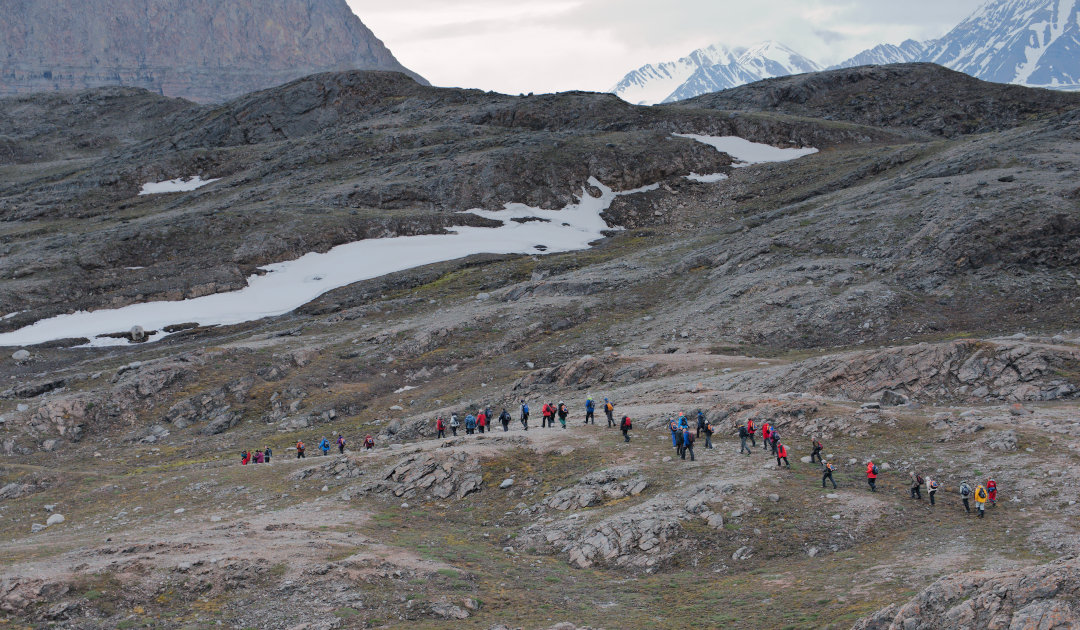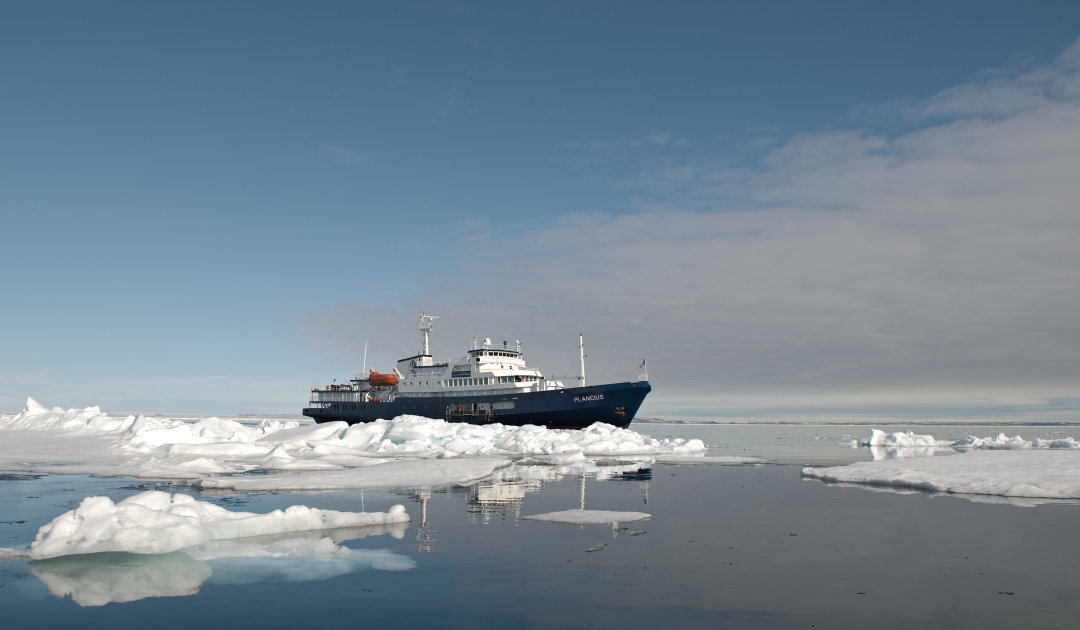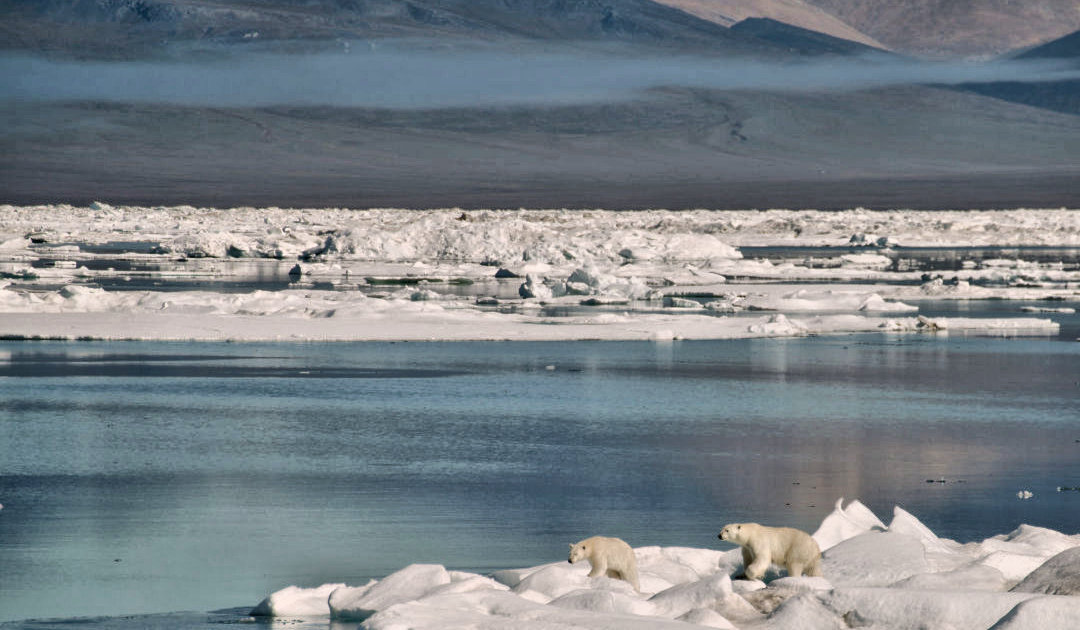
When COVID-19 caused a standstill in everyday life and living all over the world last March, it became clear pretty quickly that there would be no travel either. The upcoming Arctic tourism season was also affected. All operators and suppliers of Arctic tours stroke their colors and postponed their activities until this year. Hopes were high that the pandemic would be over by then. But one year later, everything looks different and hopes slowly break up like waves on an Arctic beach.
New virus variants, different vaccination campaigns, COVID waves in Arctic regions, ever new entry regulations, the situation this year is even more complicated than last year. While last year all countries were facing the same problem, high death rates, and governments were trying to get a grip on the situation with emergency decrees and hard lockdowns, economic and social policy considerations are now back on the agenda. Openings are demanded by numerous associations, organizations and parties, so that the economic survival is secured as well as that of the people. And this is exactly the crux of the matter: the situation of the countries is no longer uniform, but very different. The dates promised a year ago for when the population would be vaccinated and the corresponding return to normality, also in tourism, could not be met by most countries. Furthermore, there is little agreement on how vaccinated persons should identify themselves, whether they should receive any facilitations at all when travelling, keyword “vaccination passport” and where and how long such documents should be valid.

The current situation is also a challenge for providers and shipping companies of Arctic expedition tours, especially from a logistical point of view. Some of the larger operators have already cancelled their season altogether this year. These include, for example, SIlversea Cruises or Scenic. Other providers have not yet completely given up their hopes and have only cancelled part of the season. These include Hurtigruten, Oceanwide Expeditions and Quark Expeditions. The latter have confirmed to PolarJournal that they have postponed the season on Svalbard and the Russian Arctic (North Pole, Franz Josef Land, etc) until next year. Thomas Lennartz, Quark’s Vice President of Sales, explained via e-mail to PolarJournal, “Quark’s approach this year has been to wait and see in certain regions to evaluate the likelihood of travel. If it is very apparent that travel is not possible, we will make a decision and communicate that decision to our guests and agents approximately 1.5 to 2 months prior to the start of travel.” This statement can confidently be considered representative of all operators who have not yet completely cancelled their season. More information will emerge in the coming weeks.

But what do such words mean for customers? What happens if the booked trip does not take place? A situation that led to great difficulties and uncertainties last year is to be avoided this year. Practically all providers have changed meanwhile their booking policy to the new overall situation and have included COVID as a factor for short-term cancellations. At Quark, for example, this policy is called “Booking with Confidence”. This means shorter rebooking periods, COVID-19 protection and refund guarantees in the event of cancellation due to COVID. Measures relating to health and safety on board, in the event that the voyages do take place, have now also been further developed. More detailed information can be found on the websites of the providers.
Some providers have not cancelled their departure dates, but have moved them to another, simpler region for the time being. For example, the Cape Race team has unceremoniously transported its concept of expedition cruises right to your doorstep and invites you to experience the Baltic Sea. “On several sailings, the same activities are offered as on voyages around Svalbard, but with the beauties and experiences that await the curious visitor in the Baltic Sea. And there are quite a few of them,” explains Nikolaus Gelpke, co-owner of MS Cape Race and publisher of the well-known mare magazine. Later in the season, the ship will then cross to Svalbard, if the situation allows.

Other providers who operate smaller ships also have trump cards up their sleeves. Heritage Expeditions, who offer their trips to the far reaches of the Russian Arctic on the other side of Russia, believe the season doesn’t need to be cancelled just yet. This is because Russia allows some countries in Europe to enter only with a negative PCR test (issued in Russian or English) and continue to Chukotka. In addition, the shipping company has the advantage that its ship is registered in Russia and also the crew consists of locals. This will make things easier, believes Aaron Russ, co-owner of Heritage Expeditions. “We are also ready for guests from Europe from late July, early August,” he tells PolarJournal.
Nevertheless, we ask ourselves the question: What is actually going on in the Arctic this season? Svalbard, Greenland, Canada, Alaska and the Russian Arctic have different situations and even for experts it is difficult to keep track of the situation. With the list of regions below, we try to offer an overview of what the current situation is with regulations and operators that have not yet completely withdrawn from the season. We have also only looked at ships with a passenger capacity of up to 500.
Important: We do not guarantee the completeness and correctness of the data! Contact and check each provider’s website for the most up-to-date information. We assume no liability!
| Arctic region | Tourist entries | Measures | Possible providers |
| Svalbard | Norway has tightened its entry regulations again as of 28 April and banned entry for tourists until further notice. This measure shall also apply to Svalbard. | Entry only allowed for certain reasons. Entrants must register, present a negative PCR test taken within 24 h, be tested on arrival and be quarantined in a special hotel for 10 days. | As of July/ August www.mscaperace.com www.oceanwide-expeditions.com www.hurtigruten.de www.tallship-company.com www.polar-quest.com www.hl-cruises.de www.poseidon-expeditions.de www.ponant.com www.albatros-expeditions.com |
| Greenland | From 3 May via Denmark (entry requirements from Denmark apply); valid until 31 May 2021. | Entry is only permitted from Denmark and the Danish entry regulations apply. Visitors must present a negative PCR test not older than 72 hours and must immediately enter a 14-day quarantine period. This can be lifted at the earliest after 5 days with a new negative test. | From July www.oceanwide-expeditions.com www.quarkexpeditions.com www.hurtigruten.de www.hl-cruises.de www.poseidon-expedition.de www.nationalgeographic.com www.ponant.com www.albatros-expeditions,com |
| Canadian Arctic | Closed to tourists until the end of the year. Journeys through the Northwest Passage are also prohibited until further notice. | The Canadian government reserves the right to reassess the situation depending on the situation. | As of July www.quarkexpeditions.com |
| Russian Arctic | Russia has a list of countries that are allowed to enter Russia and from where there are also direct flights to Moscow. This also includes Switzerland and Germany. | You may enter the country with a max. 72h old negative PCR test certificate in Russian or English. No quarantines are necessary. Tourist visas must be obtained through the relevant authorities. Entry is only possible by air. | Russian Far East: www.heritage-expeditions.com www.nationalgeographic.com Franz Josef Land: www.poseidon-expeditions.com |
| Alaska | Basically, Alaska wants to let tourists in. The U.S. Congress is expected to pass a temporary law allowing non-stop shipping outside the U.S. to avoid the closure of Canadian ports. | In principle, there are no entry requirements for direct entries. Anyone traveling to Alaska via another U.S. airport must follow U.S. regulations. Beginning June 1, all Alaska entrants are to receive a free vaccination upon entry (1.dose of Pfizer/Biontec or Moderna). The second dose can also be taken if you are staying longer. | www.nationalgeographic.com www.silversea.com www.abercrombiekent.com |
Dr Michael Wenger, PolarJournal
More on the subject:





